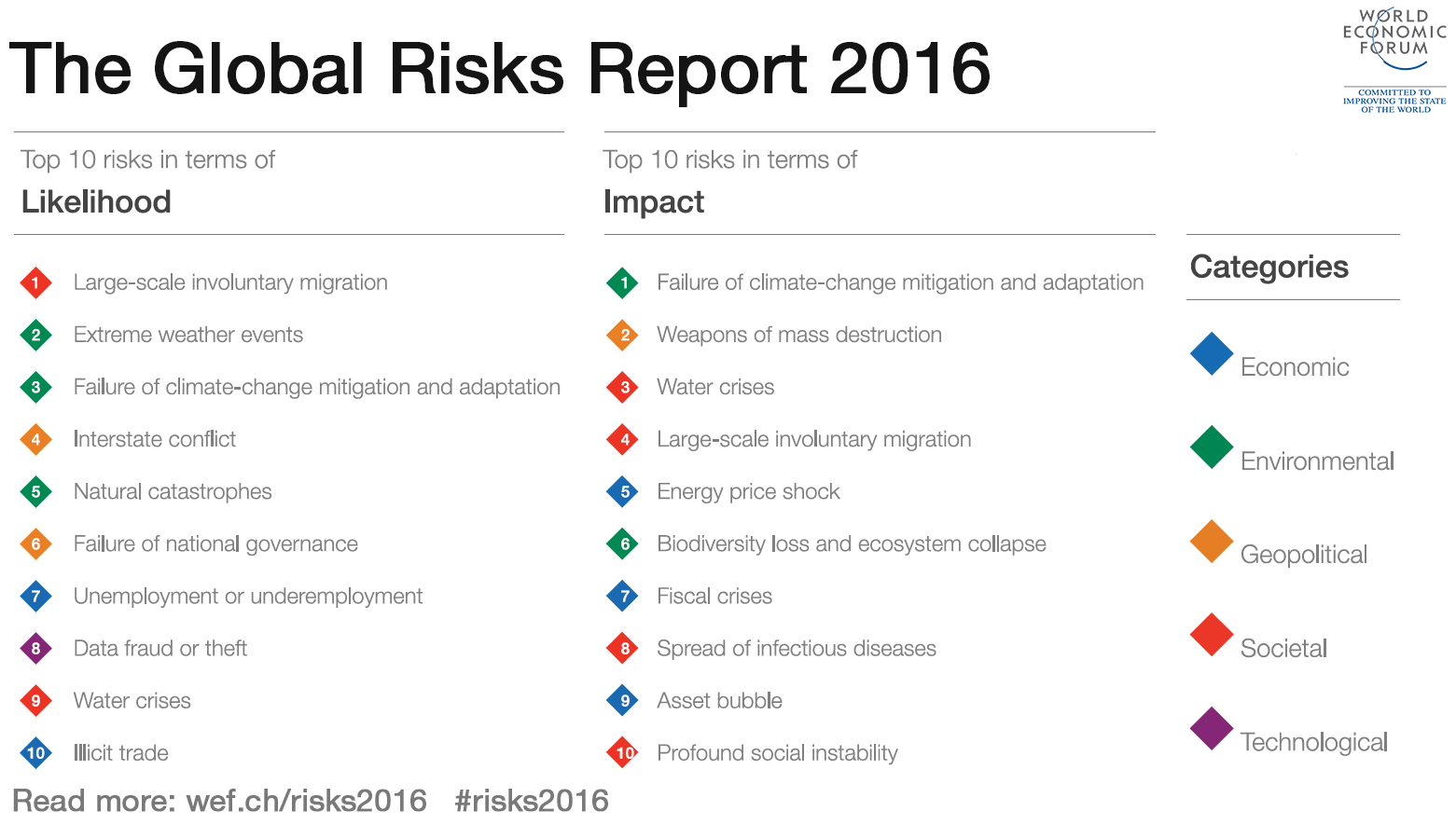3 ways for countries to build resilience to mass refugee flows

Image: Sawssan Abdelwahab, who fled Idlib in Syria, walks with her children outside the refugees camp near the Turkish-Syrian border in the southeastern city of Yayladagi February 16, 2012. REUTERS/Zohra Bensemra
The plight of refugees captured the world’s attention last year as over a million arrived in Europe, fleeing conflict and violence in Syria, Iraq and beyond. Reactions from European countries and elsewhere varied, from sympathetic and welcoming to hostile and fearful.
In the Global Risks Report 2016, large-scale, involuntary migration is identified as the global risk of highest concern for the next 18 months. Amongst all the risks, it is ranked fourth in terms of the scale of impact, with a range of political, social, economic and security risks, both to refugees and the countries in which they seek asylum.

It is however important to look not just at the risks refugees might pose for the economies and societies of host countries, but also at the potential benefits they can bring. Evidence shows that, if refugees are given sufficient support and investment, they can make significant social and economic contributions to their host countries. Countries can become better able to cope with mass refugee flows by nurturing refugees’ economic contribution and supporting their integration into host societies.
Here are three steps host countries should take to improve their resilience to mass refugee flows:
Change the narrative. Reframing the debate on refugees from one of risk to one that recognizes the substantial social and economic contribution they can make to their host societies has great potential. Support for refugees, particularly support for integration, should be seen as an investment for tomorrow, rather than a cost for today.
Germany, which received over 800,000 asylum-seekers in 2015, is one country that has taken the idea of investment to heart. With an ageing population and labour scarcity, immigration is critical to economic growth, raising employment levels and stabilizing social security systems. To that end, Germany has made significant financial investments and introduced policy reforms to promote integration. As Deutsche Bank described in a report on the influx of refugees into Germany, “The Herculean task of integrating the refugees must be seen as an investment in the future”.

Invest early in social and economic integration. Refugees can make important contributions to local economies. In Cleveland, USA, the economic impact of resettled refugees in 2012 was approximately $48 million, ten times what refugee service agencies spent on support for refugees. In Uganda, refugees make significant contributions to the local economy, which has been made possible, in part, by Uganda’s relatively open policies towards refugees, including giving them the right to work.
Host countries should reform social policies and provide funds to make it easier for refugees and asylum-seekers to find employment and access training and education. This will require conducive institutional and policy frameworks, as well as resources to support the integration of refugees and address and minimize the barriers they face.
Host countries must also provide sufficient financial, social and policy/political support to facilitate refugees’ safe and dignified arrival and integration and enable them to use their skills and potential to contribute to their host societies. This includes reducing the time refugees and asylum-seekers must wait before becoming employed; increasing access to vocational training, internships and educational grants; and providing tailored support to ensure that children and adolescents receive sufficient educational and vocational training to facilitate their integration and ultimate entry into work.
Foster public–private partnerships to support refugees’ integration into society. Public–private partnerships are critical to facilitate refugees’ entry into the labour market and address risks related to job shortages, unemployment and social tensions. Specific examples include the long-standing Canadian Private Sponsorship of Refugees Program, which enables organisations and groups of citizens to sponsor the resettlement of refugees and support their social and economic integration. Such programmes reduce government expenditure and enable a larger number of refugees to be resettled.
At the end of 2014 there were more than 21 million refugees in the world. Half of them have been displaced for over ten years. As people facing conflict, disasters and persecution continue to flee their homes, posing critical challenges and risks to even the most socially and economically stable host countries, investment in the future has never been more important.
The Global Risks Report 2016 is available here.
Author: Sara Pantuliano, Director of Humanitarian Programmes, Overseas Development Institute
Don't miss any update on this topic
Create a free account and access your personalized content collection with our latest publications and analyses.
License and Republishing
World Economic Forum articles may be republished in accordance with the Creative Commons Attribution-NonCommercial-NoDerivatives 4.0 International Public License, and in accordance with our Terms of Use.
The views expressed in this article are those of the author alone and not the World Economic Forum.
Stay up to date:
Migration
Forum Stories newsletter
Bringing you weekly curated insights and analysis on the global issues that matter.
More on Global RisksSee all
Allison Shapira
November 14, 2025






